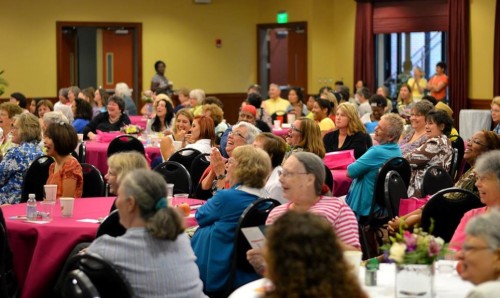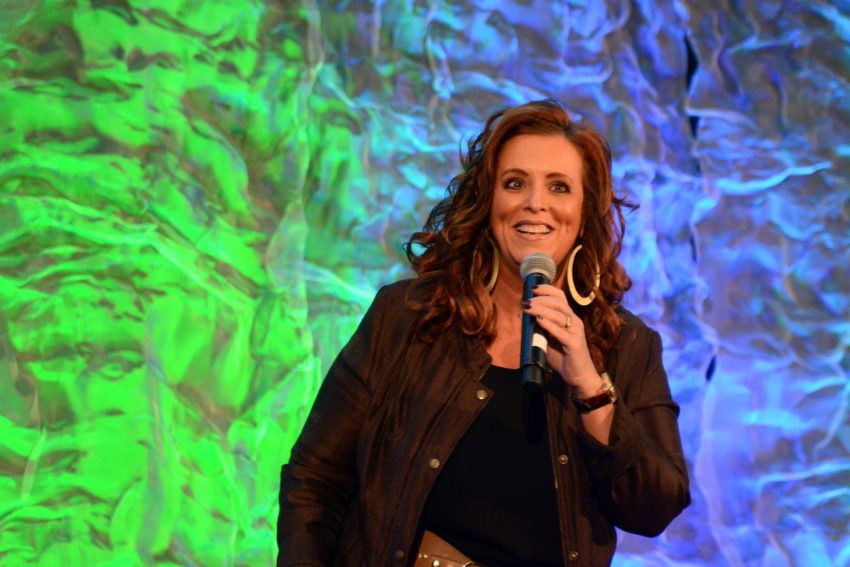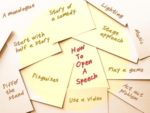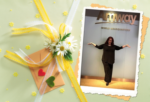Last updated on January 22nd, 2019 at 02:08 pm
How do I know what works for my audience?
As motivational speakers, we work tirelessly to create material that connects and resonates with our audience. While the words may look awesome on paper, it isn’t until we perform them that we truly know their impact. Often much of the fine tuning of a speech (hopefully not all of it) happens on the stage. Our audience, in a sense, is our coach. The audience is the client and the speech is our product. So we are in a constant state of analyzing whether something “worked” or not. But using the audience to get feedback (verbal or not) on our speech, is not an easy task. In fact, many speakers make the mistake of using one audience to determine whether that material works. So today I just want you to understand one concept – that you can’t judge your material on one audience. Period.
Every audience has a different personality.
It’s true. Not only is every audience filled with people who all have a different story, every collective audience also has its own personality, created by some of these factors:
- Where they live and their cultural frame of reference (do they understand your stories and connect to your life experience)
- How old they are
- What you look like and any preconceived notions they have about you
- What you were doing before you spoke and how it was received (were you walking around talking or were you yelling at the hotel staff)
- What industry they are in (Engineers and accountants can receive information differently from sales people or doctors)
- What time it is (Whether it is first thing in the morning or after lunch makes a big difference)
- The temperature of the room (Are they comfortable? Too hot? Freezing?)
- The layout and environment in the room (tightly confined, windows, how easy it is to see you)
- What was announced to them before you (did they just announce future layoffs, or that everybody is getting a bonus this year)
- How comfortable they feel with you (have they warmed up to you)
- How well they know each other and how much they like each other
- The overall energy of the room
All of these things (and more) factor into the general personality of the audience. And every one is different – EVEN THE SAME GROUP OF PEOPLE SEEN FOUR HOURS LATER. That group’s personality is different on the first day in the opening keynote than the last day on the closing keynote. I have had a speech that brought down the house for one group, and got mediocre response from another group at the same event not even an hour later.
What does all this mean? It means that you can’t judge your performance by one audience. Not even close.
And to make it even more complex…
Every person has different ways of “reacting” to your speech.
When you’re a comedian, your work is measured in its ability to get a laugh. That’s a reaction you can see, feel, and sort of measure. But when you are motivating people, making them think, challenging them, engaging them, empowering them…..well, that’s a little harder to measure. You can’t see a positive result on a face, or hear it in the silence, or measure it by the clapping. You can’t even go by what they tell you in person and on evaluations, because you’re only hearing the ones who chose to tell you their own personal reaction. One person will hate it and another one will love it. That’s the way it goes.
And to make it even more complex…
People love some pieces more than others
I was once tasked with putting together a 20 minute piece in front of my speaking peers. I was very conflicted over what to do in that 20 minutes, because my material overs a broad and diverse spectrum. So I asked my peers, “If you could see me for only 20 minutes, what would you want to see me do, based on what you have seen me do before?” And EVERY PERSON named something different. One said he loved my characters. Another liked my over-the-top personality. Another liked this story. Another liked that story. One said definitely the jokes. So I was right back where I started. But with an amazing new truth: Every piece of my speech does not have to strike a chord with every audience member. Some people simply like one song over another – one style of music over another. Some people like one form of comedy over another. It doesn’t make one right and the other wrong.
So how do we decide what works? Good question.
What works is what works for you and your audiences.
So how do you measure the impact of your speech?
Good question without an easy answer. It is something that is measured OVER TIME – not in one speech. And over time you judge the impact of that speech. And while it still is not an exact science, here are the factors I use to determine whether something is “stage-worthy”.
1. What do people tell me over and over in evaluations and in person? What do they say they liked about that speech and about me?
2. What do people write on social media when they go to my Facebook fan page and comment on my programs?
3. What do the clients tell me after I have spoken? What do the repeat clients tell me about why they are bringing me back?
4. Did the audience laugh in all the right places?
5. How often did they get up, text, talk to their neighbor?
6. Are they looking at me, or looking down at paper or a device?
7. How often do I get a standing ovation?
8. After I speak, how many people come find me to buy my book or take my picture or chat with me?
9. How much product did I sell?
10. How many people from that audience went and booked me somewhere else?
11. How much of my business is driven by word of mouth? Am I begging people to hire me, or are they seeking me out because they heard about me?
12. How comfortable is my audience with me once the speech is over? What kind of relationship have I established?
13. How eager is my client to give me a testimonial, and what do they say?
14. What do people say about my stories and style of delivery?
15. What do people say about how they felt after my program?
16. What do people say they did with what I taught them?
17. When I finish speaking at a conference, how many people are buzzing about my speech?
18. How many notes did they take while I was giving them content?
19. Are they smiling and happy looking, for the most part, or confused, or bored looking?
20. If you are still in the first few years of your speaking business, then you are still polishing your speech, developing your content, and working through all of your material to get better and better. You might have a harder time knowing how you’re connecting. But if you’ve done more speeches than you can count, and you know what you’re doing up there, and you rarely get spin off business, repeat business or word-of-mouth business – then you probably aren’t connecting as much as you could.
While marketing and selling, and telling the world that you are here, is of vital importance to our business – what will get you booked more than anything is being phenomenal on the stage and connecting with your audience. It’s not about being the best speaker. In fact, it’s not about the other speakers at all. It’s about you, and that audience, and that moment, and that one dance. The experience that you give them (not the information – but the EXPERIENCE that wraps that information) will determine how often you are booked. Make that connection and make a raving fan, and that person will be a champion for you – for years. I know. It’s been the foundation of my business.
Okay. That’s enough for today. Go get back to work.
Kelly Swanson is an award-winning storyteller, comedian, motivational speaker, Huffington Post Contributor, and cast member of The Fashion Hero television show airing on Amazon Prime. She is also the author of Who Hijacked My Fairy Tale, The Land of If Only, The Story Formula, and The Affirmation Journal for Positive Thinking. She was a featured entertainer for Holland America Cruise Lines, keynote speaker for the International Toastmasters Convention, and has keynoted major conferences and corporate events from coast to coast. She just launched her one-woman show Who Hijacked My Fairy Tale in theaters, and it is being booked all over the country. In July of 2022, she was inducted into the National Speakers Association Speaker Hall of Fame.
Note: Articles by Kelly may contain affiliate links and may be compensated if you make a purchase after clicking on an affiliate link.





